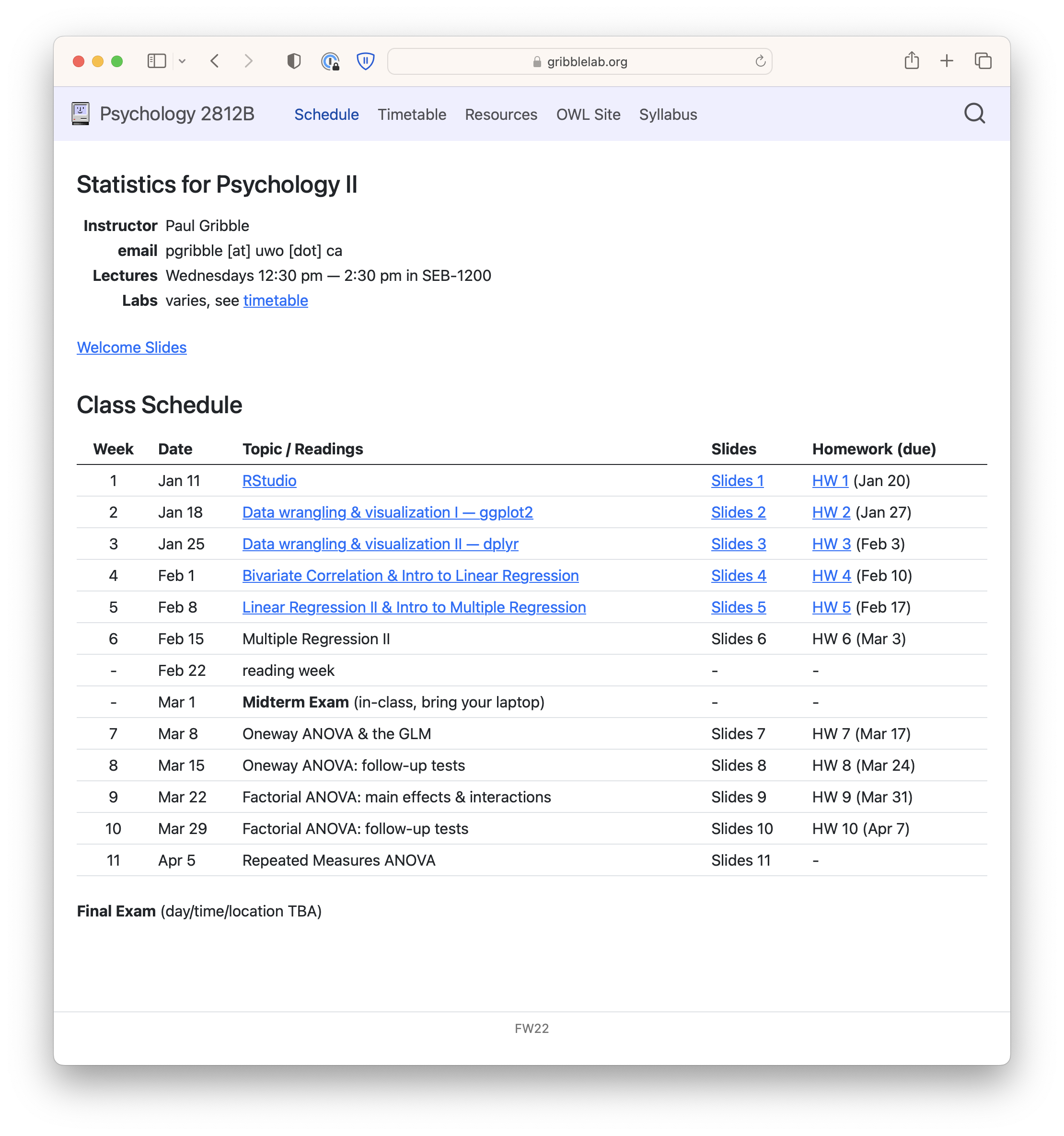Welcome
Week 1
Welcome!
- This is Psychology 2812b, “Statistics for Psychology II”
- My name is Paul Gribble
- I’m a Professor in the Dept. Psychology and also in the Dept. Physiology/Pharmacology
- My research is on neural control of voluntary movement and motor learning in humans — https://gribblelab.org
- I don’t hate statistics!
- I hope after this course neither will you
Administrivia
- Lectures are Wednesdays 12:30 pm – 2:30 pm in SEB-1200
- Labs are each week (check your section’s day/time/location)
- Course resources and weekly schedule is on the course website:
Grades
- 30% Weekly homework assignments
- 10 homeworks are assigned (3% each)
- 35% Midterm Exam
- March 1, in class
- 35% Final Exam
- date/time/location TBA
Textbook
- You do not have to buy a textbook
- We will be using free books and resources on the internet
- Assigned readings will be posted on the course website
R/RStudio books
- R for Data Science
by Hadley Wickham & Garrett Grolemund
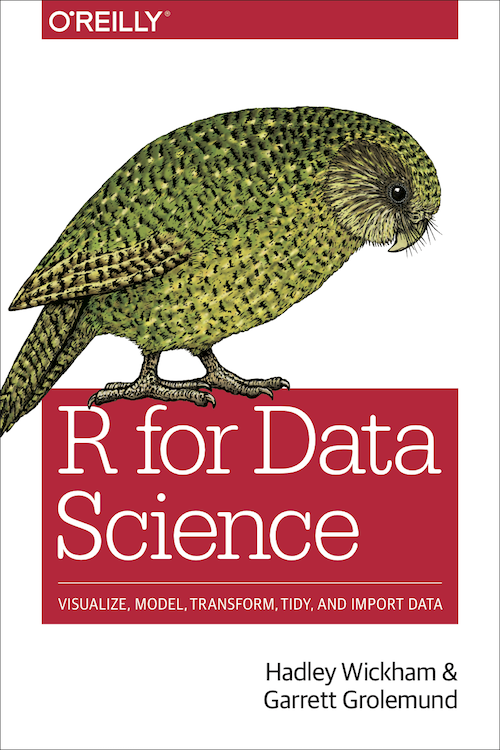
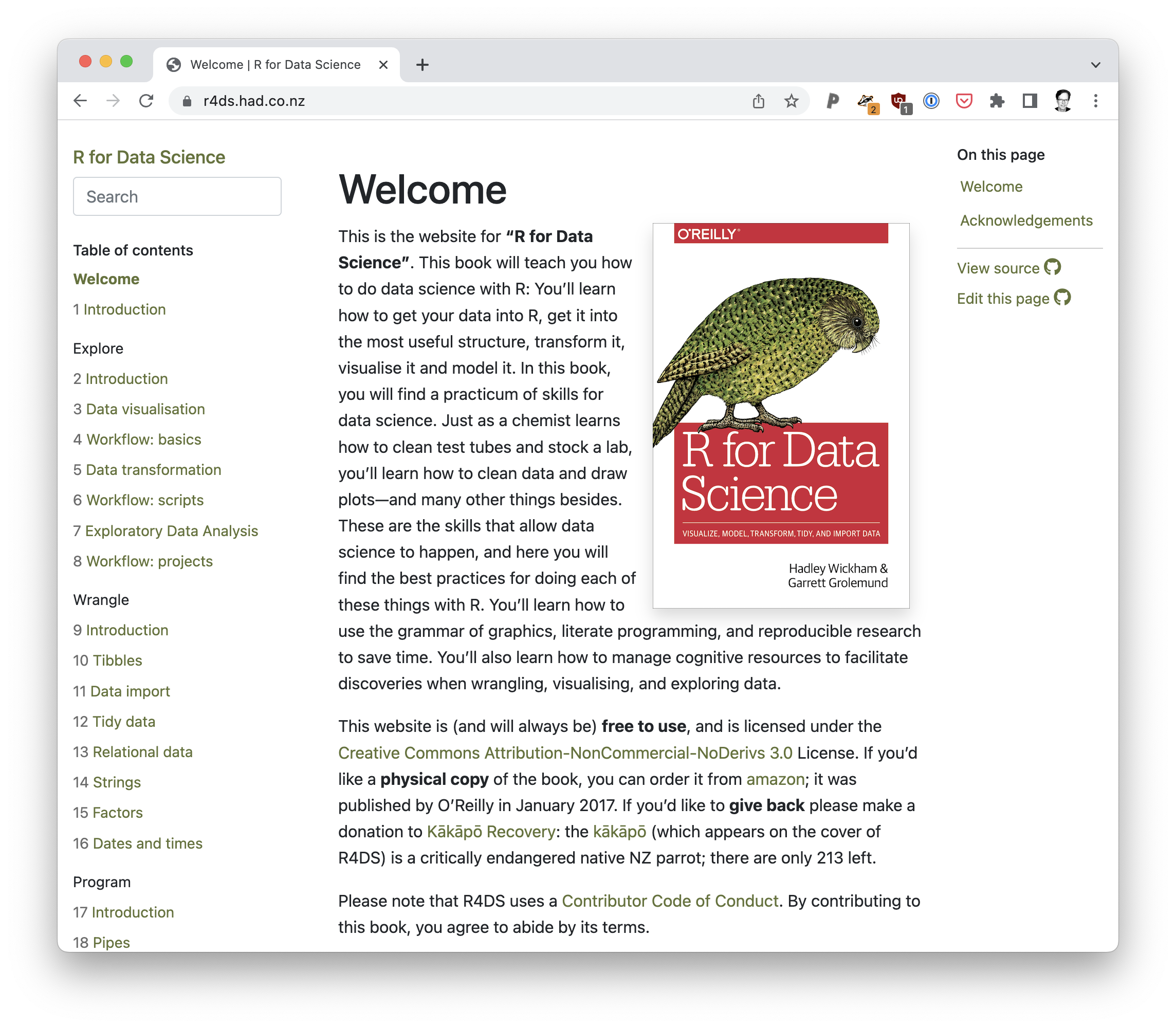
- ggplot2: Elegant Graphics for Data Analysis
by Hadley Wickham

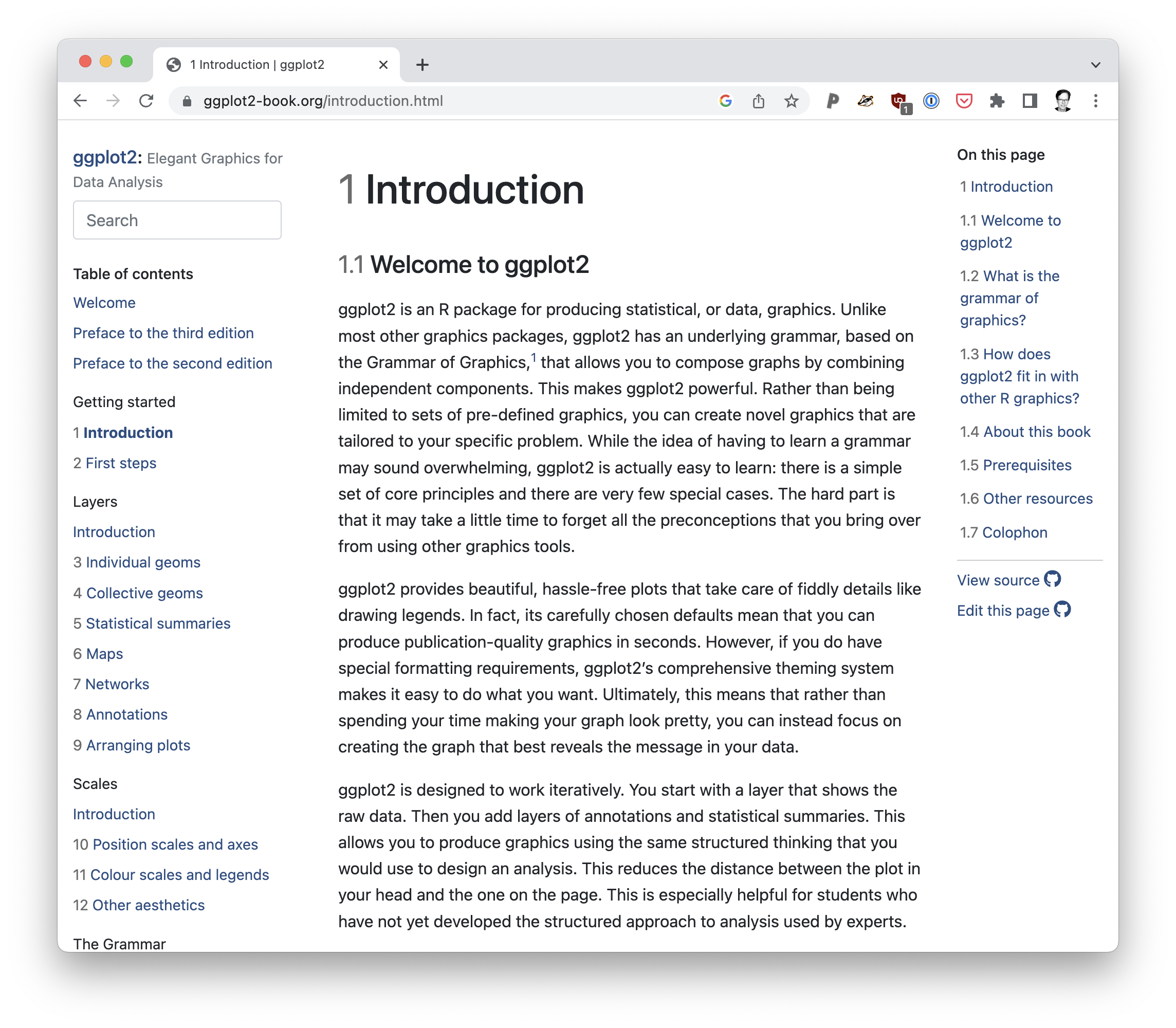
Statistics books
by Matthew J. C. Crump, Danielle J. Navarro, & Jeffrey Suzuki
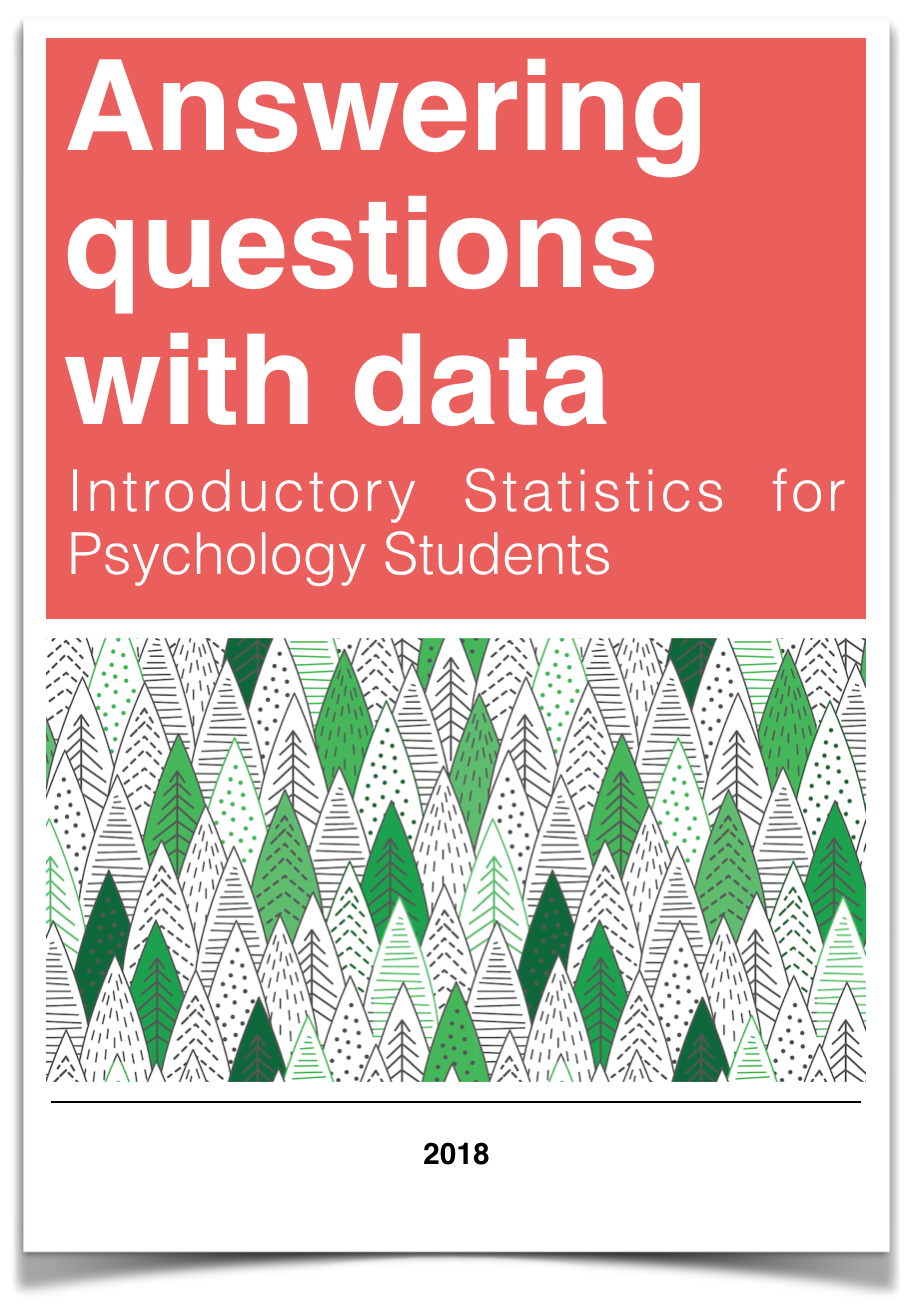
Statistics books
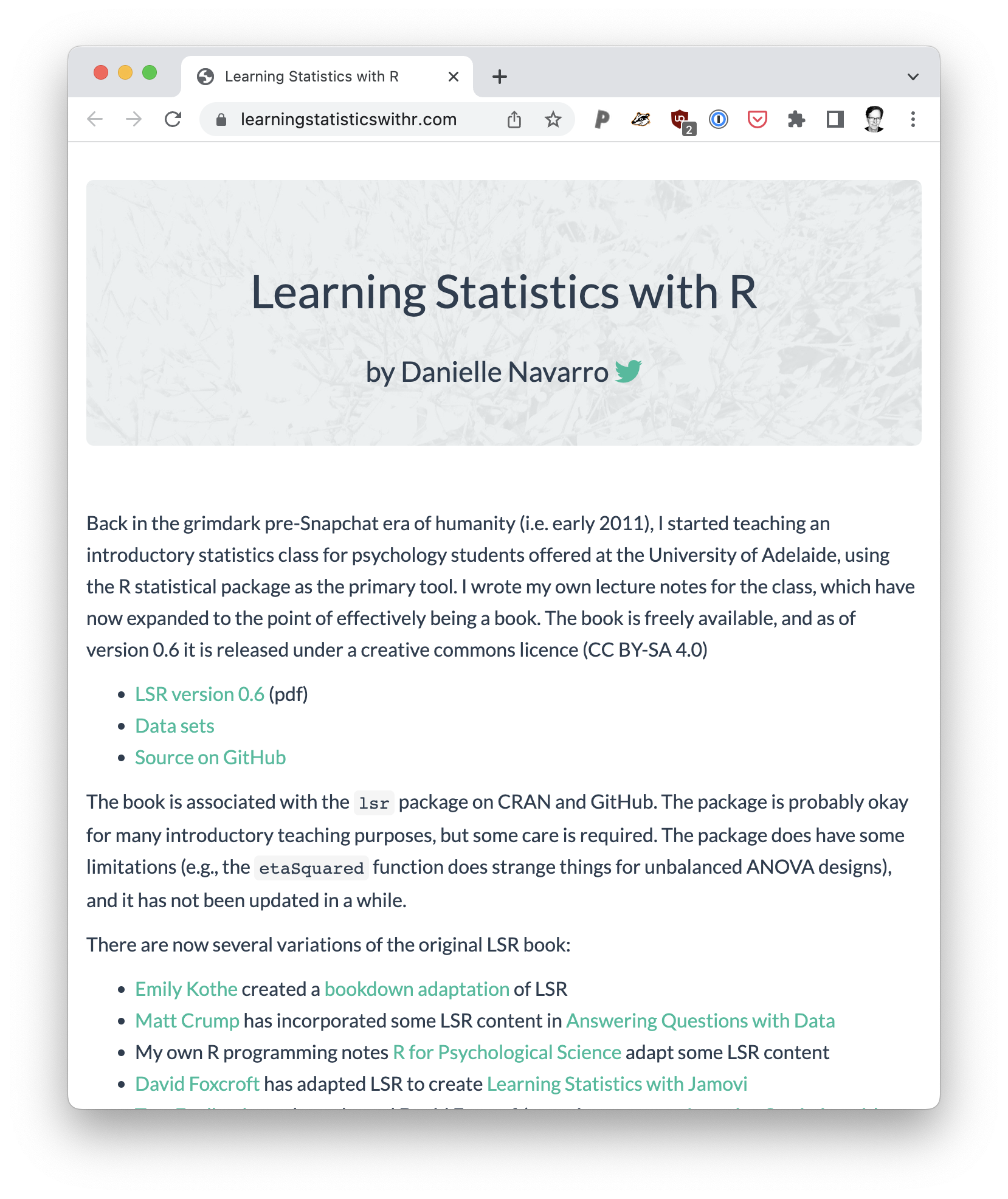
Laptop
R
- https://www.r-project.org
- statistical computing language
- free & open-source
- available for macOS, Windows, GNU/Linux
- download here

RStudio
- RStudio
- integrated development environment (IDE) for R
- free & open-source
- available for macOS, Windows, GNU/Linux
- download here

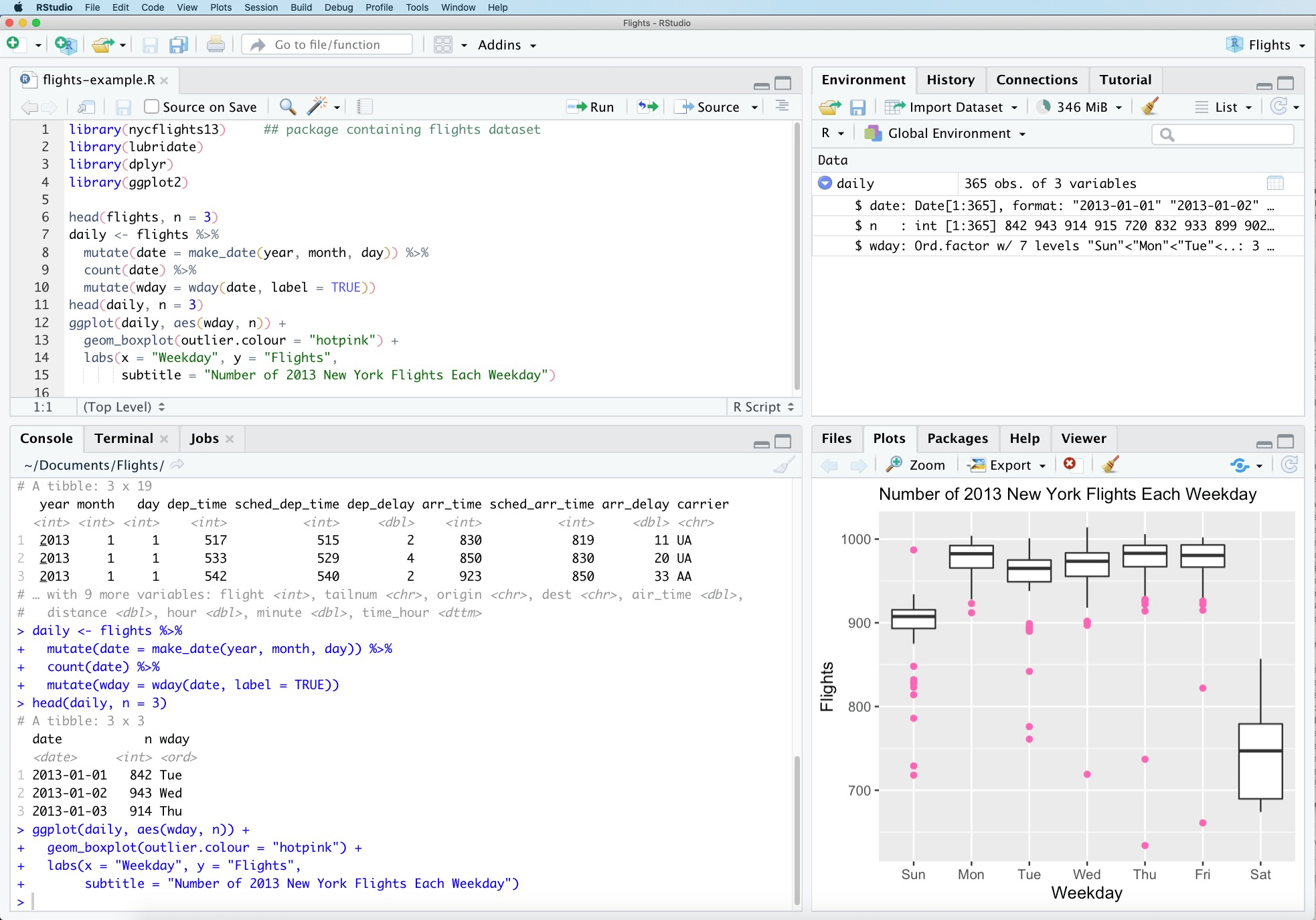
Lectures
- Lectures are where I present the logic & rationale of the weekly topic
- I may (or may not) show an example in RStudio
- You will get more out of class if you complete the assigned readings before the lecture
Homework
- homework assignment is based on weekly topic
- you will write code in RStudio
- what you need to do to be prepared for the homeworks:
- complete the assigned readings
- try out the example code in readings
- attend lectures
- attend labs
Late Homework
- Homework is due at 5:00 pm on Fridays
- A homework solution is posted on the course webpage the following Monday at 12:00 pm
- For each 24-hour period (or portion thereof) that your homework is late until Monday at 12:00 pm, it will incur a penalty of 0.5% (out of 3%)
- If your homework has not been completed by the time the sample solution is posted (Monday at 12:00 pm), it will receive a score of 0
Labs
- Each homework assignment will have two components
- Lab Component to be done together with the TA in the lab session
- Home Component to be done on your own
- Both components are to be handed in and graded
- Lab attendance is optional
- but don’t come to the TA or Professor for help on the homework if you chose to skip the lab
Exams
- Homework assignments are a good representation of what the exams will be like
- some multiple choice
- some short-answer
- mainly organized around:
- data wrangling & visualization
- statistical tests
- written interpretation of findings
Exams
- The midterm exam will be in-class during regularly scheduled lecture time
- It will be composed of short answer & multiple choice questions, involving definitions of terms, understanding concepts, and analysing and interpreting data
Exams
- You don’t have to memorize equations
- You do have to be familiar with any equations we discuss in class and that are discussed in the mandatory readings
- “familiar with” means knowing how to use the equation to calculate the thing of interest
Exams
- closed book, no laptop, no calculator
- one double-sided “cheat sheet” permitted, standard letter sized paper (8.5 x 11”)
Syllabus
- Full details about the course policies & procedures can be found in the course syllabus
- syllabus can be found on OWL and on the course website
- read the syllabus

Course Goals
- understand the logic & rationale behind statistical tests
- learn some common statistical tests & procedures
- common thread: linear models of data
- learn to use RStudio for:
- data analysis & visualization
- statistical tests
- writing reports
A Pep Talk
- statistics has a bad reputation
- courses can be boring, stressful, confusing
- often focused on rote memorization of recipes & procedures
- you end up with little undertsanding of the how & why
Our Goals
- lectures
- establish an understanding of the rationale and procedure for various statistical tests
- labs & homework assignments
- you will build up your own repertoire of statistical approaches using RStudio
- start simple and build on each subsequent idea
- requires you to keep up with the course material!
What is Statistics?
- statistic is not math (it makes use of some math)
- statistics is not calculation (calculations are performed)
- statistics is not (just) different ways of describing data
- statistics is a logical framework for interpreting data
- statistics helps you answer the question:
What do my data mean?
What is Statistics?
- We’re not really (usually) interested in our dataset on its own
- We are actually interested in what our dataset says about how the world works
- we use inferential statistics to make conclusions about how the world works (poplulation) based on our data (sample)
Elements of a statistical framework
- fundamentals of probability (previous courses)
- sampling theory (previous courses)
- Null hypothesis significance testing (previous courses and this course)
- Linear models of data (this course)
- Competency with modern tools for analysis & visualization (this course: RStudio)
- Bayesian approaches (future courses)
Our approach in this course
- linear models of data to
describe phenomena - null hypothesis significance testing for
inferences about the world (population)
based on our data (sample) - RStudio as a modern tool to do both of the above
Course Webpage
- assigned readings
- lecture slides
- homework assignments
